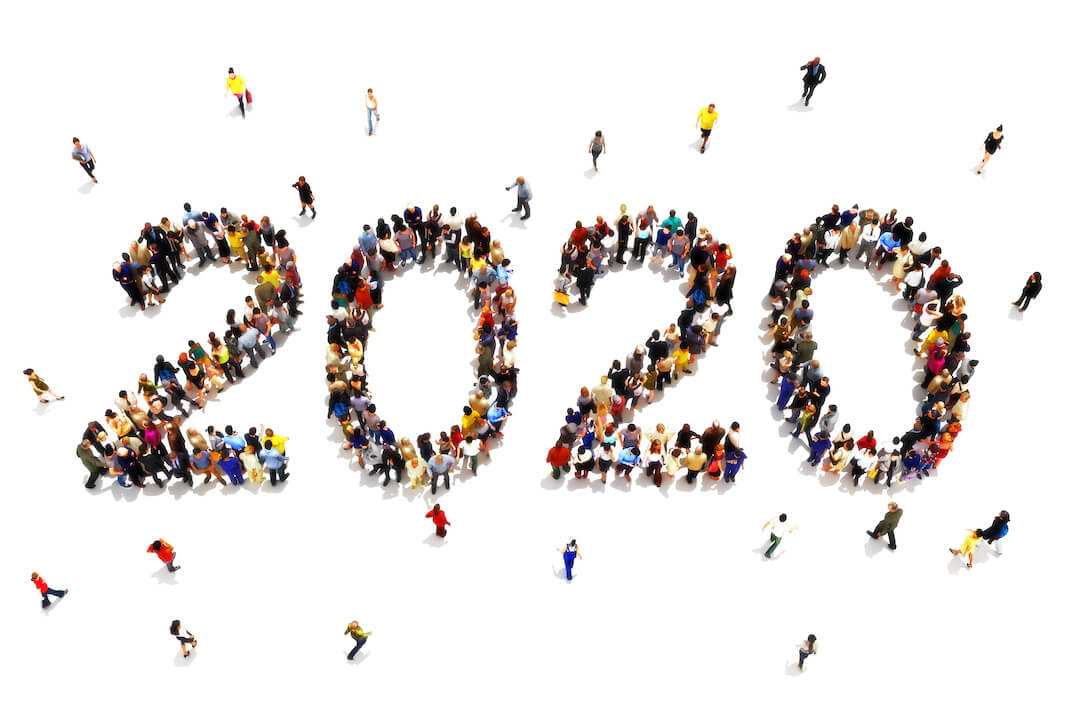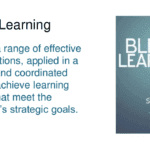This website uses cookies so that we can provide you with the best user experience possible. Cookie information is stored in your browser and performs functions such as recognising you when you return to our website and helping our team to understand which sections of the website you find most interesting and useful.
The Major Workplace Trends of the Past 10 years

As we bring a close to the 2010s, it’s a great time to reflect on all the major workplace trends that have impacted employees around the globe. This has been a banner decade, creating a major shift in how organizations view employees. moving from “human resources” that need to be managed to “talent” that needs to be recruited, developed, and retained.
From my view, as a former chief learning officer and now a consultant working with global organizations, these are the major workplace trends of the past 10 years.
Employee Engagement
Gallup published its first report on employee engagement in 2013, shifting the conversation almost overnight. This became the ground on which many of the following movements launched. Focusing on employee engagement, and its relationship to retaining good people, was strengthened by labor shortages in many industries and specifically in key technical and leadership roles. Read more on the Employee Engagement on the Rise in the U.S.
Health and Wellbeing
The passing of the Affordable Care Act in 2010 started a shift in the national conversation around access to healthcare and wellbeing in general. By 2015, wellbeing and work/life balance become a major consideration for employees when choosing a place to work. Hundreds of apps were built and many employers began offering a wide range of wellness programs that go far beyond basic insurance. By 2017, the global wellness economy reached $4.2 trillion and continues to grow.
Mobile Access
The ubiquity of smartphones around the world is astounding, growing faster than all previous technologies. Smartphones are providing access to information, learning, and networking in ways not previously possible. Many communities have smart phones when they don’t even have consistent access to clean water or food. In addition, social media tools now play a vital role in fueling democratic movements in oppressed countries.
Professional Learning
Video sites like Lynda.com and Youtube made learning from experts not only affordable but easily accessible to people around the world. In 2015, LinkedIn acquired Lynda.com, moving professional learning to the forefront of career growth. As the shelf life of skills gets shorter, lifelong learning has become the new norm with organizations investing heavily in learning and other talent development programs.
Flexible Work Environments
Technology has fueled the ability for employees to work in a multitude of new ways, which has given rise to more flexible work arrangements. People can engage in real-time knowledge sharing and collaborative work as well as work remotely and be part of teams around the world.
Networks of Teams
Teams, and networks of teams, become the primary way work is done across industries. 90% of employees say they spend one-third to one-half of each day working in teams. 91% of employees and executives believe that teams are central to their organization's success and yet 30% of employees have considered leaving their job because of negative team environments. My own research into the brain science of high-performing teams has yielded a new model for creating great teams in the new reality of work.
Neuroscience
During this decade, technology gives neuroscientists new tools, creating an explosion in studies on how humans are wired. Dr. Richard Davidson used an MRI machine to study mindfulness and meditation. Dr. Paul Zak explored the neuroscience of trust, and Charles Duhigg discovered the power of habit. I also research neuroscience and wrote 3 books on learning, change, and high-performing teams. Neuroscience will continue to transform what we know about ourselves.
Mindfulness
At the intersection of wellbeing and neuroscience, mindfulness becomes mainstream. Studies have proven the many impressive benefits of mindfulness in areas like stress reduction, pain management, easing depression and anxiety as well as increasing resilience and slowing the aging process. Many leaders went public about their meditation practices, including Oprah, Bill Gates, Jennifer Lopez, Arianna Huffington, and top athletes. As a result, many organizations including industry giants like Google and LinkedIn, offer free mindfulness classes to employees.
Social Issues
Millennials have focused on social issues in greater numbers this decade. They are bringing much needed awareness and the beginnings of change to sexism, racism, homophobia, and climate change. They were raised to believe they could make a difference and their use of social media helps them grow support quickly. They consider themselves supporters or allies rather than activists.
#MeToo
In 2016, this powerful movement brought much-needed awareness to harassment in the workplace and the many problematic policies that keep offenders in positions of power. Several prominent repeat offenders, across a wide range of industries, lost their jobs and some went to prison. Neuroscience has shed light on what causes people in power to harass others and the devastating effects that impact survivors.
>> Watch the Seismic Shift: Recorded Webinar
Diversity and Inclusion
During this decade, there has been a greater emphasis on diversity and inclusion as a business imperative. Several studies have shown that diversity brings about great organizational benefits with diverse groups outperforming their homogeneous counterparts on innovation, problem solving, decision making, quality, and resolving conflict. Yet, this only happens if people feel included. Neuroscience has shown that exclusion lights up the same region of the brain as physical pain so the focus is now on creating true belonging through acts of inclusion. This has led to a focus on addressing conscious and unconscious bias. Thought leaders like Verna Myers and Jennifer Brown are leading the charge.
Climate Change/Crisis
These past ten years have also brought greater visibility and urgency to climate change. The predictions scientists made a few years ago are coming true with bigger and more damaging storms around the globe. Every country is dealing with the impact of ongoing droughts, raging fires, devastating floods, and paralyzing storms. Just recently, Greta Thunberg has launched a global movement of ongoing climate protests and strikes. Read more on Greta Thunberg: TIME’s Person of the Year 2019.
Looking to the Next Decade
As we look forward, there are a few trends that are already starting now and will likely drive much of the next decade.
Learning will be catapulted by VR.
Technology is aligning more and more with how the brain learns. Studies have shown that virtual reality provides an experience so immersive that it actually codes in the brain as a lived memory. When used appropriately, VR can catapult professional learning especially in the areas of skill building, empathy and inclusion, and geospatial experiences. Companies like Pixvana and Strivr are leading the way and many organizations are now exploring how to incorporate VR into their learning strategy. It is sure to be a gamechangers on multiple fronts.
Workplaces will become more purpose-driven.
Aaron Hurst, author of The Purpose Economy, says we are shifting from the information economy that has been in place since 1950 to a purpose-driven economy. This is born out by other studies: 71% of Millennials rank “finding work that is meaningful” as one of their TOP 3 factors for determining career success. They are not alone: 89% of employees want to work on things related to their personal interests or that will impact society yet 50% of employees say that they lack a level of meaning and significance at work.
Organizations will become more conscious.
Frederic Laloux studies organizational consciousness (see his book Reinventing Organizations), and has identified a clear trend in organizations becoming more focused on caring about people and the planet. Read his book to see the implications of this shift for years to come.
I am encouraged by the tone and direction of these trends. We are caring more about people and helping them reach their potential. We are recognizing that we are a global community and that our actions impact each other. And we are focusing on how to be good stewards of the planet and its limited resources. I foresee that the 2020s, energized by the passion and focus of Millenials and Gen Z, will bring many important changes and positive changes.
Are there trends that I missed that you think should be added? Please join this conversation by adding them in the comments below.
Related Blogs
JOIN OUR COMMUNITY
Be the first to know of Dr. Britt Andreatta's latest news and research.






